What is the relationship between SIBO and alcohol?
A recent study concluded that moderate alcohol consumption is a strong risk factor for small intestinal bacterial overgrowth, SIBO. Since then, I have been approached by several SIBO sufferers wondering if they should abstain from alcohol. This post addresses their concern and evaluates the study. But, before jumping into the heart of the matter, I want to go over SIBO and alcohol in regard to gastrointestinal health in general.
What is SIBO?
Small Intestinal Bacterial Overgrowth (SIBO) is a common condition linked to a variety of functional gastrointestinal disorders (FGIDs) and other conditions including:
- irritable bowel syndrome (IBS)
- Laryngopharyngeal Reflux Disease (LPR)
- gastroesophageal reflux (GERD)
- celiac disease
- Crohn’s disease
- diverticulitis
- fibromyalgia
- asthma
- rosacea
- interstitial cystitis
- autoimmune disorders
- cystic fibrosis
If you rounded up everyone with these conditions, you would end up with well over 100 million people.
SIBO is defined as the presence of an abnormally high number of bacteria in the small intestine. Most SIBO bacteria originate from the large intestine. It’s normal to have lots of bacteria in the large intestine. It’s also helpful for digestion. But if you end up with more than 100,000 bacteria per milliliter in your small intestine, you are SIBO positive.
It’s a bad thing because these harmless and helpful large intestine bacteria become harmful in the small intestine. They can disrupt digestion by producing toxins, enzymes and intestinal gases. They can also cause intense physical discomfort and damage the small intestine.
The symptoms of SIBO include:
- abdominal pain or cramps
- diarrhea
- constipation
- gas
- bloating
- acid reflux
- flatulence
- nausea
- dehydration
- fatigue
More severe symptoms related to SIBO can include:
- weight loss
- failure to thrive
- steatorrhea (the body’s failure to digest fats)
- anemia
- bleeding or bruising
- night blindness
- bone pain and fractures
- leaky gut syndrome
- autoimmune reactions
Alcohol and Gastrointestinal Health
Alcohol abuse is well studied, and I think we all can agree that it’s pretty bad for your health.
People who regularly consume large amounts of alcohol experience a variety of health issues often. This is particularly true with regard to the digestive system.[1] Excessive alcohol consumption is linked to:
- liver and pancreas disease
- fat malabsorption
- gastritis
- gallstones,
- steatorrhea (poor fat digestion)
- villi and microvilli damage
- malnutrition
- diarrhea
- leaky gut
- immune deficiency
- changes in gut microbiota
Many of these gastrointestinal (GI) problems could contribute to SIBO. In fact, one study[2] linked SIBO to alcoholic cirrhosis while another[3] measured excessive bacterial growth in both the small intestine and stomach of alcoholics. GI problems and a much higher cancer rate take their toll, and alcoholics die about 10 – 12 years earlier.
But what about moderate alcohol consumption?
Moderate alcohol consumption is defined as no more than 9 drinks per week for women and 12-14 for men. If heavy alcohol use is bad for your health, moderate alcohol might not be as bad, but abstaining should be best, don’t you think? But, it turns out that is not the case. People who consume alcohol in moderation actually live longer than those who abstain.[4]
Why? Because of reduced risk of heart disease.
A Canadian team of researchers found a significant reduction in risk of heart-related disease and death in women having 1 drink per day or in men having 1 to 2 drinks per day. This is based on 84 different studies involving about 1 million people. Reduced risk of heart disease may center on alcohol’s ability to reduce arterial plaque and blood clots.
Less is known about the effect of moderate alcohol consumption on digestive health.
But a systematic review of published studies[5] found that moderate alcohol consumption is associated with only small increases in gastrointestinal health risks. This includes liver disease, oropharyngeal and esophageal cancer and pancreatitis. On the other hand, moderate alcohol use reduces risk of gastritis and gallstones. The overall conclusion was that moderate alcohol intake is not a high risk factor for gastrointestinal diseases.
Evaluation of The Alcohol and SIBO “Gabbard” Study
Now, what about this study? A quick summary of the paper is this. It was a retrospective (observational) study of 196 people who had previously taken lactulose hydrogen/methane breath tests for SIBO. The researchers compared the results of their breath tests to other information on their medical charts for things like:
- smoking
- alcohol consumption
- PPI use
- Gastroesophageal reflux disease (GERD)
- Irritable bowel syndrome (IBS)
- gallbladder removal, etc.
Among the 93 people who tested positive for SIBO, here are the results: Of the patients who were moderate drinkers, 58 % had a positive breath test, compared to 38.9% of abstainers. This difference led the authors to conclude that moderate alcohol consumption was “a strong risk factor”for SIBO.
On a positive note, their statistical methods as well as the way they conducted the breath test and interpreted the results were well thought out and sound. On the other hand:
- the study population was relatively small (statistical power of 80%)
- the study design was observational, which cannot prove a cause and effect relationship
- the subjects were all sick with a variety of maladies making it more difficult to assign alcohol as the cause vs. other illness
- alcohol use was determined simply by reading information on the patient’s medical chart as opposed to a validated self-report form. This matters because different doctors or nurses may complete these charts differently.
SIBO and Carbohydrate Malabsorption
But the biggest reason I remain skeptical has to do with carbohydrates. Carbohydrates, not alcohol are the primary source of energy for SIBO.
In the study, the carbohydrate content of alcoholic drinks was not reported. Had that data been available I would view the results differently.
A growing body of evidence supports the idea that too many fermentable carbs promote SIBO. Published studies on diets that limit dietary carbs, i.e., Specific carb, low FODMAP, low carb and elemental diets all result in symptomatic improvement of SIBO related conditions.[6][7],[8],[9]
A recent news headline citing the study in question read “Just One Drink per Day May Be Cause of GI Woes Like Bloating, Gas, Abdominal Pain, Diarrhea.” Yet, where is the evidence that abstaining from alcohol improves these symptoms one iota?
Ten years ago, I made a connection between carbohydrate malabsorption and SIBO being the primary cause of acid reflux. I was able to treat my own acid reflux simply by limiting carbohydrates, especially hard to digest carbs. There is a lot of scientific evidence for my theory presented in the Fast Tract Digestion Heartburn book and for the connection between IBS and SIBO in the Fast Tract Digesiton IBS book.
But my point is this: once I reduced dietary carbohydrates, nothing else seemed to matter for instance, moderate alcohol consumption (minus the carbs), stress, other trigger foods, and additives. I believe it’s because carbohydrates are the preferred food of bacteria that cause SIBO hence the key dietary factor that controls it.
These two studies support my contention that GERD can be improved with a carbohydrate restricted diet.[10],[11]
One of the studies noted that “Use of substances such as tobacco products and alcohol did not change after they initiated the diet. Therefore, these substances are unlikely to factor into their symptom relief.” Also, a systematic review of studies published from 1975 through 2004 on lifestyle modifications for GERD concluded that there was no evidence that cessation of alcohol improved symptoms.
And the amount of carbohydrate in many alcoholic drinks is not insignificant. I consider distilled spirits, dry wine, or light beer safer alcoholic drinks for SIBO because they have very few hard-to-digest carbohydrates.
But many people drink regular beer, sweet or dessert wine, liqueur or mixed drinks which contain lots of sucrose, fructose or resistant starch in the case of beer. These carbohydrates are hard-to-digest for many due to their molecular structures in food chemistry and / or individual digestive deficiencies. They can promote bacterial overgrowth and dramatic symptoms in susceptible individuals. Here is a good article listing the sugar content of alcoholic beverages.
Conclusion
For me, science speaks at the end of the day, and I am always open to new research. But I believe that carb counts must be considered in studies on SIBO.
My own experience, my review of the scientific literature on alcohol, and the success of carbohydrate restriction (but not abstaining from alcohol) for treating SIBO-related conditions lead me to believe that controlling dietary carbs is the key to prevent and control SBIO, not abstaining from alcohol.
Of course, you should abstain if you are concerned, but I stick by my recommendation. The three keys to controlling SIBO are:
- Identify and address potential underlying causes – of which I don’t consider moderate alcohol consumption as one
- Limit fermentable carbohydrates in foods and drinks that fuel SIBO
- Implement pro-digestion behaviors
I welcome your views and / or experience with moderate alcohol for acid reflux, IBS and SIBO.
Feel Better, Live Long , Enjoy Life.
______________________________________________________________
[1] Alcohol and the Gastrointestinal Tract. Singer MV, Brenner DA (Eds) S Karger Pub. 1st Edition, May 2, 2006.
[2] Casafont Morencos F, de las Heras Castaño G, Martín Ramos L, López Arias MJ, Ledesma F, Pons Romero F. Small bowel bacterial overgrowth in patients with alcoholic cirrhosis. Dig Dis Sci. 1996 Mar;41(3):552-6.
[3] Hauge T, Persson J, Danielsson D.Mucosal bacterial growth in the upper gastrointestinal tract in alcoholics (heavy drinkers). Digestion. 1997;58(6):591-5.
[4] Holahan CJ, Schutte KK, Brennan PL, Holahan CK, Moos BS, Moos RH. Late-life alcohol consumption and 20-year mortality. Alcohol Clin Exp Res. 2010 Nov;34(11):1961-71.
[5] Alcohol and the Gastrointestinal Tract. Singer MV, Brenner DA (Eds) S Karger Pub. 1st Edition, Page 15. May 2, 2006.
[6] Shepherd SJ, Gibson PR. Fructose malabsorption and symptoms of irritable bowel syndrome: guidelines for effective dietary management. J Am Diet Assoc. 2006 Oct;106(10):1631-9.
[7] Austin GL, Dalton CB, Hu Y, Morris CB, Hankins J, Weinland SR, Westman EC, Yancy WS Jr, Drossman DA. A very low-carbohydrate diet improves symptoms and quality of life in diarrhea-predominant irritable bowel syndrome. Clin Gastroenterol Hepatol. 2009 Jun;7(6):706-708.
[8] Pimentel M1, Constantino T, Kong Y, Bajwa M, Rezaei A, Park S A 14-day elemental diet is highly effective in normalizing the lactulose breath test. Dig Dis Sci. 2004 Jan;49(1):73-7.
[9] Barrett JS, Gibson PR. Fermentable oligosaccharides, disaccharides, monosaccharides and polyols (FODMAPs) and nonallergic food intolerance: FODMAPs or food chemicals? Therap Adv Gastroenterol. 2012 Jul;5(4):261-8.
[10] Yancy WS Jr, Provenzale D, Westman EC. Improvement of gastroesophageal reflux disease after initiation of a low-carbohydrate diet: five brief cased reports. Altern Ther health med. 2001. Nov-Dec; 7(6):120,116-119.
[11] Austin GL, Thiny MT, Westman EC, Yancy WS Jr, Shaheen NJ. A very low-carbohydrate diet improves gastroesophageal reflux and its symptoms. Dig Dis Sci. 2006 Aug;51(8):1307-12.[/fusion_builder_column][/fusion_builder_row][/fusion_builder_container]


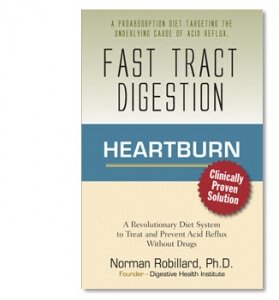
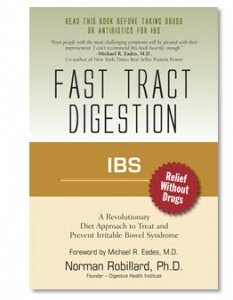
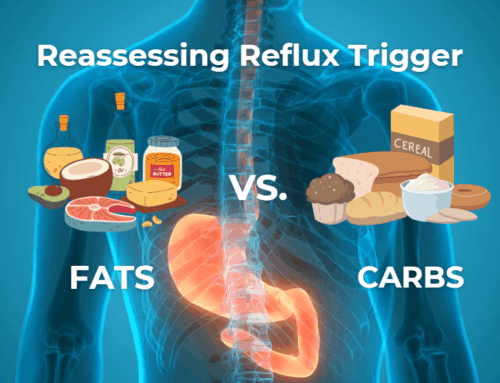

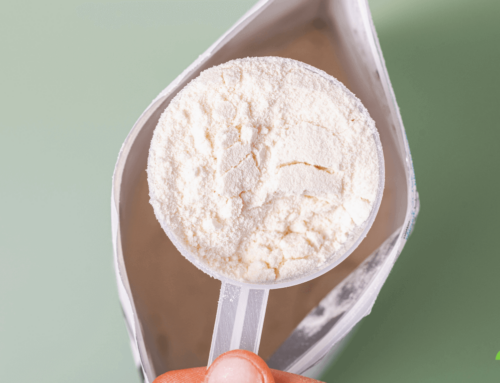

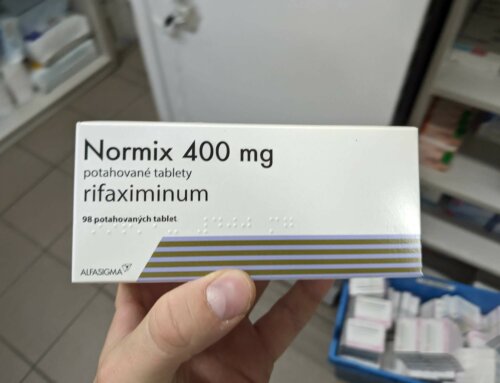
Great article, Norm. I was wondering the very same thing. 1. What *kind* of alcohol were the subjects drinking? And 2. How does that ratio of drinkers to abstainers compare to the ratio of drinkers to abstainers in the general public (control group)? Your conclusions seem correct to me. Which makes me happy. Now I can continue to enjoy my tequila (with no added carbs). :)
Hi Heather, Thanks for stopping in. Control group? That would be great. I have been enjoying your work on NCGS. Such a fascinating topic. I’m looking forward to your next article.
Thank you for a very thorough article on this subject. With SIBO diagnosis there is so much to give up. I enjoy a small glass of dry red wine. There is so much conflicting information out there. It is good to have people delving into it and helping us figure it all out!
Thanks Sam, I agree. As a long term heartburn sufferer, I hated the idea of giving up foods that didn’t seem to matter. Now I am happy to limit foods evidenced to drive symptoms. But why give up things that don’t matter a damn just because of some dietary dogma. We need to evaluate the actual evidence more and blindly follow opinions less no matter how broadly they are believed and regurgitated.
Norm
As always, thank for your thoughtful post! For me, I have had some success sticking with the occasional gin and soda water with a twist. I avoided alchohol for two years and it did not help my SIBO or my overall health that I am aware (although I used to drink sugary cocktails! so I know now that was not good). It did however, significantly curb my social interactions!! The one question remaining for me, is the general advice from “Candida” doctors about avoiding alcohol really applicable to wine and light beer, and unsweetened, distilled spirits? It seems the years of research on candida has been very confounded by SIBO, as the two seem often confused and the symptoms overlap. Many people with SIBO likely have some candida overgrowth, since some of the underlying health issues (antibiotic use, motility issues) would predispose one to both. But per your previous reflections that candida can’t thrive in a nutrient-limited gut, I am starting to question the conventional wisdom that alcohol must be avoided when one is managing candida, and or candida and SIBO. I still am not clear on this. In my case, occasional moderate social drinking has put my mind at ease (avoidance was causing me distress), has not increased my SIBO symptoms, and has contributed to overal stress-reduction. Stress has not been my friend in battling chronic illness. The occasional drink has been more postive than negative.
Our experience has been similar Bearsmom – no effect. As for Candida overgrowth, I can’t imagine why it would be different. I would be happy to look at any research papers on abstaining for Candida should anyone comes across one and post it here.
I just ordered your book and am waiting to start the Fast Track diet. I have been diagnosed with Sibo three different times. Methane then hydrogen sulfide type and now currently methane type. I do not want to take antibiotics again. I have also been taking prucalopride since last Nov. I have read that there is not a very reliable test for hydrogen sulfide type (I flatlined on my second hydrogen breath test). I have been on low Fodmap, low protein (when I was diagnosed with the hydrogen sulfide type), and low oxalate diet for IC. Do you think it is possible to have the methane and hydrogen sulfide type at the same time? If so, what do you think about a diet approach as methane feeds off sugars and hydrogen sulfide bacteria reduce sulfur (protein, eggs, cabbages). Thank you.
Tamara
Hi Tamara,
Interesting question. I would imagine that over time, one’s gut microbe populations could shift from methane producing archaea to sulfate reducing (sulfide producing) bacteria. In each case, hydrogen gas from fermented carbohydrates provides the energy/fuel. That indicates to me that the Fast Tract Diet should limit the growth of both archae and sulfate reducers because it’s designed to reduce hydrogen gas production.
As for whether or not you could have both types (archaea and sulfate reducers) present in high numbers at the same time, according to one study the pathways of hydrogen use appear to be exclusive, meaning that only one type predominates at any point in time.
For more info, here are a couple of references:
https://www.nature.com/ajgsup/journal/v1/n1/full/ajgsup20126a.html
https://www.ncbi.nlm.nih.gov/pubmed/1551534?dopt=Abstract&holding=npg
Can a person eat watermelon having sibi
Yes Cathi, within reason. The tables in Fast Tract Digestion books lists watermelon as one of the lowest in Fermentation Potential – more SIBO friendly.
I am so happy that watermelon is OK! What about sushi?
BTW, your book is saying that jasmine rice is low FP, whereas other types of rice are high and could be problematic. This is hard to understand as all types of rice are high in carbohydrates. Can I eat sushi at the restaurants? Or do I have to make my own from jasmine rice only?
Tim, you should read the relevant sections of the book again on starch and rice. The key is not the amount of starch, but the type. Jasmine and sushi rice contain amylopectin – easy to digest. Other rices contain amylopectin, but also high levels of amylose starch – hard to digest. Sticky rice at sushi restaurants is fine.
Thank you, Norm! I just started reading your book and, apparently, jumped to FP tables too quickly. This information is very useful. I love it and want to thank you very much for your work.
Norm, I am on your diet for sixth day now (following your exact recipes from the book), and, as expected on a high protein diet, I have started experiencing constipation. Constipation and gas from SIBO are making me feel very bloated. Is there anything I can do to alleviate this side effect?
Tim, Carbs generally are more constipating than either proteins and fats, but people react differently to diet changes. Solutions for constipation vary based on individual situations which is why we have the consultation program.
Norm! I can’t believe I stumbled upon this post and it’s by you. I already read your book and I’m dealing with SIBO & blastocystis hominis.
Right now I’m on a super strict diet and my only source of carbs is sweet potatoes… yet, I’m a high methane producer (That’s my type of SIBO) so when I tested replacing all my sweet potatoe consumption with jasmine rice, I felt a headache for 3 days.
Do you have any suggestions for replacing sweet potatoes? If I don’t have carbs, I have absolutely NO energy and I’m starving all the time! I’m trying to get off of sweet potatoes because I believe I react strongly to polyols.
Thanks for all the work you’ve done in the field and I look forward to your response. Let me know if I can support you in any additional way!
Eric, you might try wheat germ unless you are intent on avoiding all gluten. Either raw or toasted, although raw is healthier. The fermentation potential is moderate (yes, I checked with the calculator at this site) and the nutrition is superior. A quarter cup of wheat germ contains 14 grams of carbs, 7 grams of protein, 4 grams of fiber and 3 grams of fat (Omega 3 and 6). Rich in B vitamins including B1 which is essential for energy.
I appreciate what you have to say. I have SIBO and have found that alcohol (even in small amounts) relieves the SIBO symptoms I have. I’m thinking that in the study you mentioned which showed a correlation between SIBO and alcohol use that the people studied were perhaps using alcohol because it gave them some relief from their symptoms. It may not have caused or exacerbated SIBO and its effects at all, particularly if the subjects were/are drinking SIBO-legal alcoholic beverages. Anyway, thanks again. I look forward to hearing what else you have to say in the future.
Interesting Ellen. I hadn’t thought about that.
Ellen, I have the same experience! I find that beer (any kind that doesn’t have added sugars after fermentation) is one of the only things that I never have a reaction to, and will actually often calm my symptoms. Have you heard about this anywhere else? I have reported it to doctors, but just get weird looks…
I found this site because I googled “why does wine relieve my ibs crampy belly?”. I am seriously thinking my problem has been sibo! Thank you all :)
Hey Norm,
Great article. From a scientific standpoint your logic makes sense. For me however I am affected by alcohol consumption. And how much I intake tends to correlate with the severity. I can’t postulate as to why but I do know it happens. I’ve tried many different types of liquor and for me Rum, Tequila, Beer, and Vodka mess with me the most. And to walk you through my story I wasn’t able to fully heal until I completely cut it out and added in Vagal exercises. I had done the diet for 8 months and cycled on and off through a variety of herbal antibiotics without getting better. Those two pieces were game changers for me.
Thank for weighing in on this Kamran. If you don’t mind, I have a couple of questions. When you said you were on the diet for 8 month, are you referring to the Fast Tract Diet? If so, roughly how many FP points per day were you consuming? Also, how many beers per day were you drinking and was it and light or regular? Lastly how many total alcoholic drinks per day on average were you consuming? Thanks.
Kamran, One more question. What were your symptoms that alcohol exacerbated?
Hello dr. Robillard,
First of all, I’ve really enjoyed your book and insight into this disease. I’m 99% sure I have LPR and probably have had for 10 years, but couldn’t figure out what it was, as it started when I was about 13 years old!
With that being said, I’ve also noticed that HARD LIQUORS like vodka and whiskey are completely fine and actually help my symptoms to a degree. It’s a real shame that my social life was suffering for so long thinking the drinks would do harm.
Oh yea, another thing. Last Saturday I drank 2 table spoons of ACV with water and it completely destroyed my voice. So I went out that night and actually drank quite a lot of whiskey and vodka (always straight! :D), smoked cigs and woke up with healed voice. Just wondering if alcohol had something to do with it, perhaps cleaning the throat of pepsin/bacteria or something?
Interesting observation. I can see why ACV might irritate your vocal cords / throat, but sure why hard alcohol (and cigars!) would heal the problem. Anything is possible, but it could also be that you simply recovered despite your drinking and smoking. But at least for the alcohol, there is at least the possibility that it killed some bacteria possibly involved in the irritation.
Hi there. I brought your book AND app.
Please advise “How many points do we aim for on a daily basis with hydrogen dominant sibo?”
This is my BIGGEST concern re following the diet.
Thank you
Elle
Hi Elle, It really depends on how severe the symptoms are. For milder symptoms, the app and book recommends staying under 45 points. Most people starting out should shoot for between 25 and 35. Those with more severe or die hard symptoms may need to keep points under 20 per day, at least until symptoms are under control.
This is such helpful information! Thank you for posting! I have seen references to your book but didn’t know what it was about. I will be ordering it up tonight. I am currently on day 6 of the elemental diet and beginning my herbal antibiotics tomorrow. It’s my birthday and I desperately want a glass of red wine. Is this acceptable during the elemental? From all of the reading I’ve done so far on your post it doesn’t seem like it would affect it. And if it is acceptable, what about 9 ounces? To be honest, 6 days with no solid food I probably won’t be taking in more than 4 ounces, but I’m just curious if I’m ruining the whole Elemental diet or not. This is miserable and extreme but I’m desperate to get rid of this SIBO.
Hi Michelle,
While one glass of (dry) wine contains only 3 or 4 grams of carbohydrate and approximately 2 grams of FP points, by definition you will no longer be on an elemental diet where the only carbohydrate allowed is glucose. If possible, get the ebook and read it before going on antibiotics.
Hi
I bought your book and App last week and I have started my fast tract diet . My problem is I have gerd which affects my throat , it feels like it is closing and I have difficulty in swallowing so I am hoping and praying that your diet helps eliviate my problems as at the moment I have no quality of life .
I have had these severe symptoms for 2 months now .
We have had many people with throat/LPR symptoms report success with the diet. Most say the same thing – it takes longer to fully recover (1- 3 months) compared with simple heartburn. The more disciplined you can be the better your results will be. If you need support, we consult globally via Skype. Good luck Julie.
Would someone contact me concerning fees for a consult on along running sibo
Hello Norm. I read your article while doing personal research on what I have surmised is a problem with my digestive bacteria. This problem began with vary mild symptoms which have increased for 20 plus years.
Do you think the strength of, concentration of alcoholic beverages swallowed may have minimal or greater influence? I mean for instance sipping Scotch on the rocks as compared to a single shot of Bourbon diluted in a glass of water? I am referring to the concentration of the alcohol swallowed.
While I don’t have data to cite, I would think Scotch or other distilled spirits on the rocks or diluted with a bit of water both may be gentler on your stomach and small intestine than drinking it straight.
Thank u soooo much Norm, I am from Iran .I have these symptoms.and when i use alcoholic beverages, i am so good .when l reported to my Dr he didn’t agree with me and he told me i have IBS and gave me various pill that they didn’t help me at all.when i give up drinking my symptoms come back after 10 days. at last by your article i find answers of my questions.
God bless u
Hi Norm, I testes positive for SIBO, high hydrogen..I don’t ever have digestive upset though from anything except sweet potatoes, but do get constipated when I consume too much dairy. But I suffer majorly from anxiety/depression. I was just curious if you’ve seen mental health issues as a common factor with SIBO? I do think alcohol (or too much of it) makes me worse..specifically make my blood sugar worse. Anyway, thanks for the info.
Hi Norm,
Nice article, but I wanted to point out that it looks like you made an error when transcribing the study results [here](https://www.ncbi.nlm.nih.gov/pubmed/24323179).
The abstract reads: “Of those patients who consumed a moderate amount of alcohol, 58 % had a positive LBT, compared to 38.9 % of abstainers”, indicating that moderate drinkers were ~1.5x more likely than abstainers to have tested positive for SIBO.
However, your article currently reads: “Among 93 people who tested positive for SIBO, 58 % were moderate drinkers compared to 37% who were abstainers”, which has a very different interpretation that depends on the prevalence of moderate drinking.
Your points about the study weaknesses are spot on–the major caveat being that the study was retrospective, not prospective.
So, as you mention, the study says nothing about whether drinking has an *effect* on someone who already has SIBO. It just demonstrated that, among the “sick” people included in the study, moderate drinkers were more likely to test positive for SIBO.
To complicate things further, just because these people tested positive for SIBO via LBT doesn’t mean they had it. As this article discusses, breath tests can be massively confounded by abnormal OC transit times [link](https://www.cghjournal.org/article/S1542-3565(15)01494-9/fulltext).
So, as you convey, it really comes down to common sense: Don’t drink beverages (alcoholic or not) that contain lots of fermentable carbohydrates. Right?
Thanks for your articles and links to research. There’s a lot of conflicting information, anecdotes, and outright BS out there so I really appreciate your scientific approach to SIBO.
Thanks Mark, I see your point and updated the article to more closely reflect the wording in the abstract.